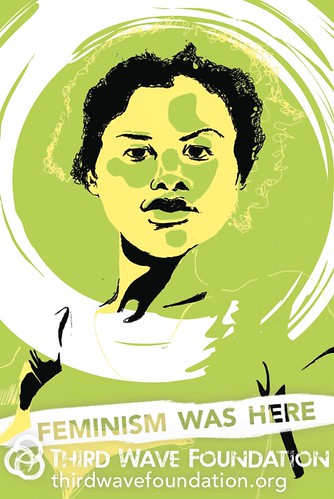I recently received some proof my normal-person job is important.
I try to keep my normal-person job (as opposed to my starving artist/struggling writer gigs) away from my blog, but I work in social justice research, so sometimes, my job and my blog can’t help but relate.
On a recent episode of Q, I heard two female journalists—Mary Elizabeth Williams from Salon.com and The Nation’s Nona Willis Aronowitz—debate the importance of women who support equal rights for women identifying themselves as feminists. They were both saddened that stars or high-profile figures like Beyoncé, Katy Perry, Lady Gaga and Taylor Swift don’t identify as feminists or, like Carla Bruni, don’t think we still need feminism. But while both saw it as problematic, Nona saw it as a problem with young women not knowing what feminism actually is and Mary Elizabeth saw it as young women actively being discouraged to wear a label that encourages them to stand up of themselves.
I’m somewhere in the middle. In my opinion, “No one taught me what feminism is,†is no excuse. (Google it for a start, if you’re not that into libraries. We’re talking about a young generation here, folks. Don’t be lazy.) I also think young non-feminists reject feminism for the wrong reasons. If you believe women deserve rights equal to those of men, that women should make decisions for themselves without a husband’s or father’s permission, that they should have the right to vote in every country, that they should earn as much as men earn for doing the same jobs men do, that “woman†and “mother†are not synonymous, you’re a feminist.
If you think race, class, ethnicity, nationality, religion, sexual prefrence, gemder identity, or generally not being an educated, rich or upper middle class, heterosexual white woman either make all those issues more complicated or make them not apply to you and that the middle-class-heterosexual-white-feminists have ignored you, then I think you’re justified in not calling yourself a feminist, even though you stand for everything feminists do.
But I don’t think that’s why most young women reject the label. I think it’s because they don’t want to be thought of, in Nona’s words, as “some big, scary, man-eating, angry monster.†And to her point, that’s not what feminism is, but these young women and girls evidently don’t know that.
Which is why my job is important. I work at an institute whose mission is to bridge the gap between academic research and social justice activism. Why is that important? It’s like what a scholar activist told me recently. This man came from the activist “side†of LGBTQ rights to the academic admin “side,†and there he met students who wanted to become activists after learning there was something to mobilize for. He said learning the theories and correct terminology, and getting everyone to speak the same language about LGBTQ rights has been a valuable lesson, because with it, the scholars and the activists have been able to unify and effectively communicate their cause.
While all women won’t have the same experience with feminism, won’t have a unified voice on every issue, and still will want no part of feminism, wouldn’t it be more effective if they all started on the same page, speaking the same language, knowing the same terminology? The more knowledge I have, the more empowered I am, and the stronger the movements I stand with are.
So I say let the Mary Elizabeth Williamses and the Beyoncés out there each take a step to bridge the gap between feminism and everything it’s not, and let’s strengthen our collective voice.

